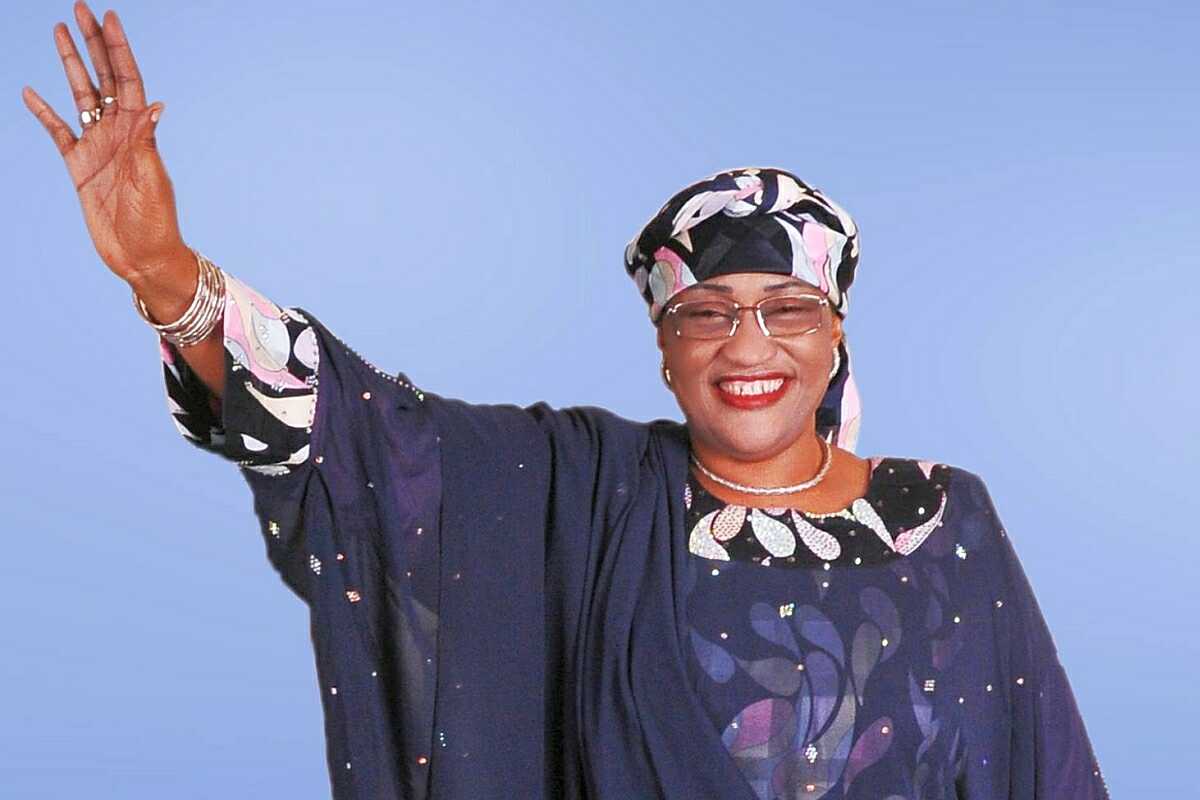Aisha Alhassan’s Subjective Conscientious Objection


Even though there is a notable dearth of moral up-manship among politicians, there contrastingly appears to be a steadily-growing moral re-armament among the populace. In the light of the nation’s fraying infrastructure, of the inadequate education system, costly fuel subsidies that strain or choke the budget, a pervasive corruption, a slothful civil or public service, etc. this contrast is markedly obvious even as it is playing out daily.
The stern and bitter force of a common grievance among the people based on the open or brazen denial of the terms of their social contract has tied or bound them together even as ambitions, desires and hopes of politicians change rapidly or without notice. Politicians do not cohere for long periods simply from sentiment or in the hope of common advantage. They are an awfully imponderable breed of homo sapiens.
Aisha Alhassan’s insurgent self-assertion show-cased in her recent BBC interview in which she distanced herself from what otherwise could have been a bloc or unanimous cabinet support for or endorsement of a second-term ticket for President Muhammadu Buhari is not only intriguing but indicative of the growing sense of despair and exasperation even among the ruling elite. Aisha has reportedly pitched her tent with former Vice President Atiku Abubakar who may have to explore another platform for his ambition as there may not be room enough for him in the APC boat. In the end, the party runs the risk of rending itself into two equal but acrimonious halves.
One is tempted to see Aisha as a woman of great personal independence and courage. I have wondered whether if she had more than a university first degree the blade may not have lost some of its blazingly daring temper in the effort to further sharpen it. This writer’s worry, however, is the lack of ideological content in our politicians’ preference for or choice of flagbearers or political parties. “Atiku is my god-father” is the a posteriori uncritical reason for Aisha’s choice.
The social and ideological framework for the change of our present unthinking, unethical or amoral bearing lies in the cultivation of a deep-seated culture of a popular democratic social order devoid of god-fatherism, ethnic chauvinism, religious bigotry, disrespect for hallowed institutions of state and impunity regarding order and set rules.
If President Buhari’s ailing health condition has prevented him for about 105 days from personally performing state duties, if his general body condition is such that he needs to pay more attention thereto and, if the rigours of presidential assignments will necessarily bear on his intellectual, physical and emotional make-up, it is insensitive, unkind or, in fact, wicked for any group of people to drum up support for him or to drag him into the race for a second term in office.
Buhari himself should be content to recite to himself and to his self-serving supporters the lucid counsel of a former American presidential candidate whose friends suggested to him to run for the presidency again. In a deserved tribute to his sense of proportion decorum or contentment, he intoned:
I have had my fling and a good one, done my share of the work according to my lights and am now a candidate for a comfortable arm-chair in the ranks of retired statesmen … I don’t wish to be uplifted, reformed or exhorted. All I ask for is a comfortable enjoyment of my own sins.”
In that particular instance, there was no slightest possibility the party would have him. But he recognised that dead politicians fall into two categories: those who do not know they are dead and those who know it and are glad of it. Buhari is suggested to be in the second class and so ought to excuse himself honourably.
Mrs. Alhassan’s seeming impetuous stance is one example of a changing mindset which in itself is a national strategic challenge. Female opposers of “settled” political social or religious issues are rare to find particularly in the ultra-conservative northern Nigeria milieu where male dominance in all matters is the rule and is taken for granted. Aisha as a high-profile female protester is sure to be a role model even as many people still have a hard time envisioning themselves as trailblazers. Gender parity is enhanced when women do better what men labour under their breath to do. Aisha should include in her role the requirement to confront upbeat religious bigotry, forced marriages, girl-child abduction, etc. all of them rampant in northern Nigeria and take up the gauntlet to vigorously interrogate these vices.
She should, for instance, send a sustained strong message to lascivious men all over the country, particularly more so in northern Nigeria, who hide under the cloak of a controversial or un-clear religious creed to commit untoward offences, especially paedophilia, against the girl child. Her relevance in politics will receive legitimation only in her practical confrontation of obnoxious practices particularly those which do not encourage or promote the cultivation or maturation of the academic or intellectual interests of women and girls in many parts of northern Nigeria.
As politicians begin to quibble over 2019 regarding their place or status in that mythical year, it is proper to draw attention to the requirement to fully discuss ahead of the election year, issues pertaining to the continuing existence of the country. The hard-worn creed or catechism that the future of Nigeria is settled and so not negotiable is unprogressive and inane. It is naïve to the extent that it does not take account of the need for the progressive improvement of the country’s processes. It ought to be made clear that Nigeria may not survive if any of the core principles of the people’s co-existence are ignored or abused for political, personal or sectarian reasons.
The people may have resolved, going by the resolutions of many of the national conferences held to determine the country’s political future direction, to live together as members of the same political community but only ceteris paribus. It is not true that they have discounted or eliminated the necessity for periodic re-appraisal of the workability or otherwise of the management modus, method or mechanics of the union. The unity of Nigeria is manifestly negotiable.
Conscientious objection arises when a person resolves not to allow his moral opinions settled by the majority and would not promise to act against what might be in the best interests of humanity. The right of conscientious objection is a long-established order of things even as it is understood to be implicit in many liberal constitutions. The rights of conscience are adjudged to be beyond the just reach of any human power as they are presumed to be given by God and may not be encroached upon by human authority “without the criminal disobedience of the precepts of natural as well as revealed religion.” Conscientious objectors propel society in the path of progress and new thinking as they interrogate existing value judgements or systems. Much of human progress have been self-effacingly brought about by these attitudes and actions. There is need to consciously court, encourage and promote conscientious objectors particularly in the circumstances of our own dire situation.
Source: The Guardian







